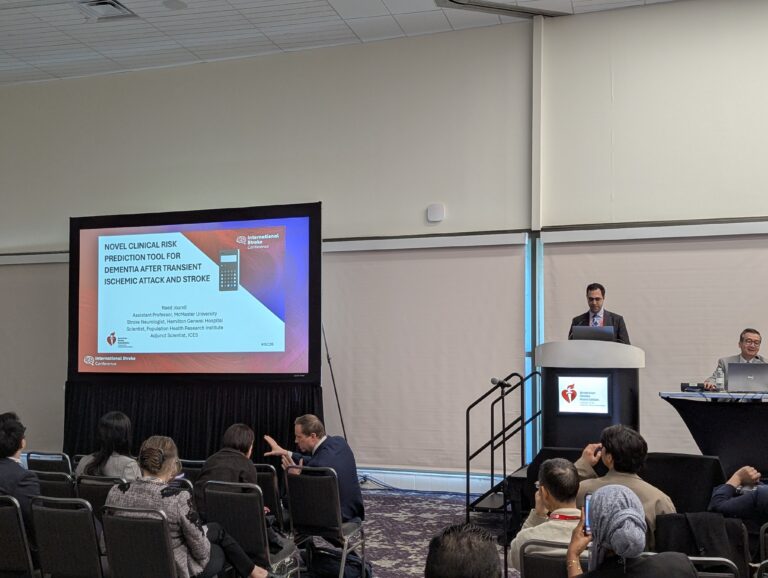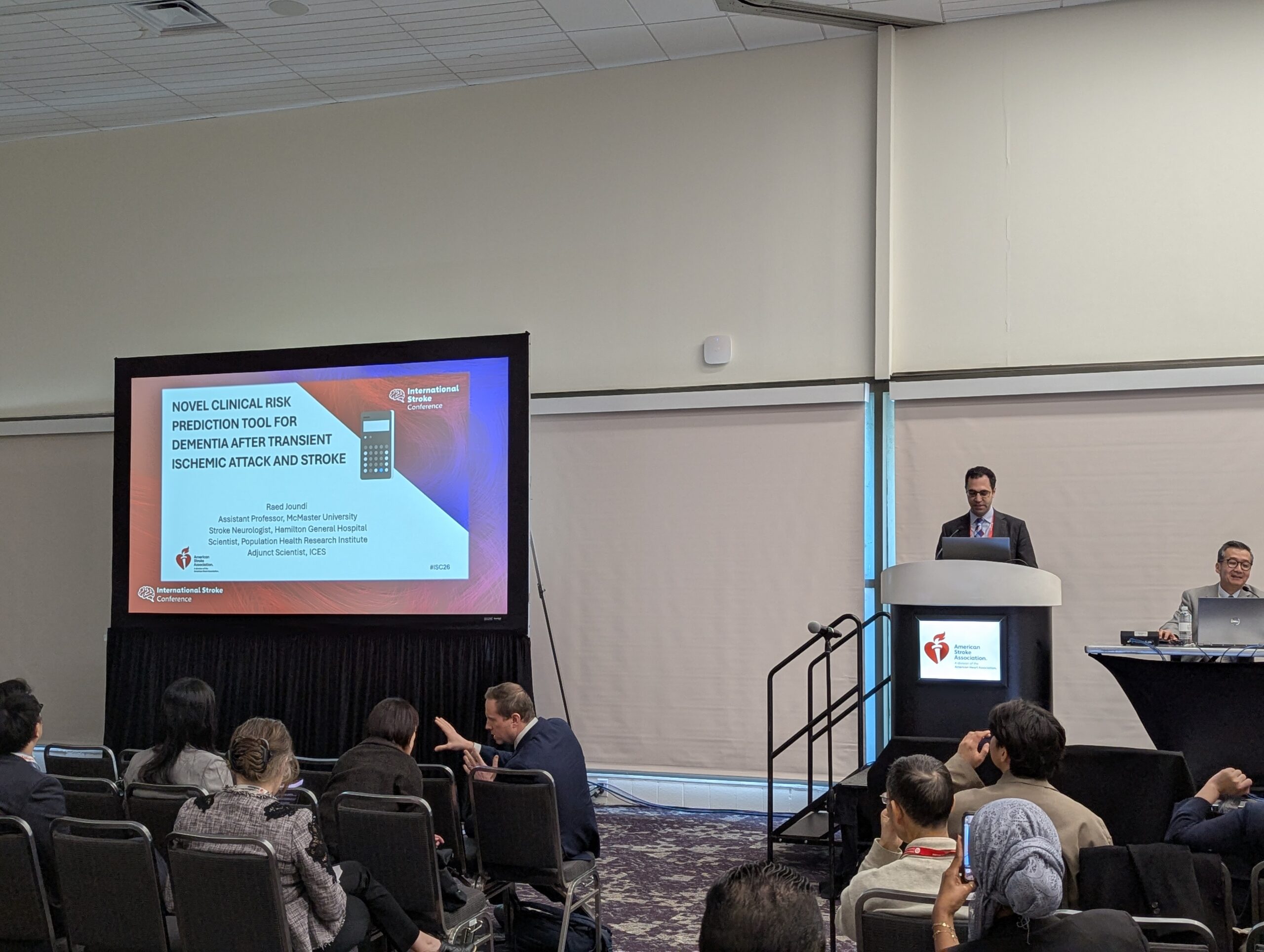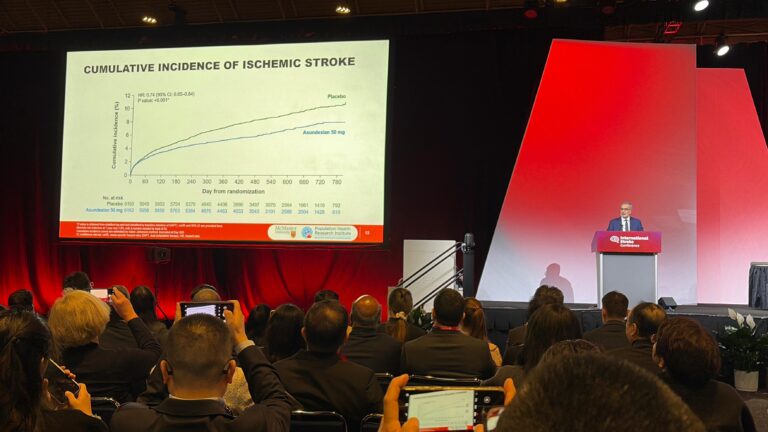
Mark Loeb
The first clinical trial of the flu vaccine’s effectiveness in patients with heart failure (HF), IVVE, has found that flu vaccines can greatly reduce the risk of life-threatening complications in people with HF.
The flu vaccine reduced the incidence of pneumonia by 42%, and hospitalization for any reason by 15% in HF patients, compared to a control group given placebo.
PHRI’s international trial was presented remotely by IVVE’s principal investigator, Mark Loeb, at ACC 2022: Late Breaking Clinical Trials today.
The vaccine’s benefits were even more pronounced during flu season – reducing pneumonia cases by 50%, and reducing heart attacks, strokes and cardiovascular-related deaths by 20%, notes Loeb, Division Director, Infectious Diseases, McMaster University.
Researchers tracked more than 5,000 patients with HF in 10 countries across Africa, Asia and the Middle East where few people have a regular flu vaccination. They received either flu vaccine or placebo annually between June 2015 and November 2021. While the vaccines reduced the risk of life-threatening flu-related complications, they did not affect the primary outcomes for patients with heart failure.
‘More proof that vaccines save lives’
“These findings highlight the immense importance of vaccinating patients with heart failure against the flu,” said Loeb, a Professor of Pathology and Molecular Medicine, McMaster University, and an infectious disease physician at Hamilton Health Sciences, and a regular collaborator with PHRI, including COVID-19 studies.
“The vaccine keeps you out of hospital and it really does mean the difference between life and death for patients with heart failure, especially during the peak flu season,” Loeb noted. “These results are yet more proof that vaccines save lives.”
While the flu has long been associated with an increased risk of life-threatening cardiovascular events, Loeb said that people with heart failure are already vulnerable to poor health outcomes.
Patients with the condition have a 50% chance of dying within five years, while 20% are hospitalized for heart attacks, strokes and other complications every year.
Loeb said that 80% of cardiovascular disease occurs in in low and middle-income countries where flu vaccination rates are also low, making them ideal research locations.
(Banner photo: Mark Loeb, centre back row, with international IVVE study collaborators, at a 2018 meeting in Paris, France.)

Mark Loeb presenting on IVVE trial at ACC 2022 on April 3 (remotely), while conference participants watched in Washington, DC. (Photo: Flavia Borges.)




